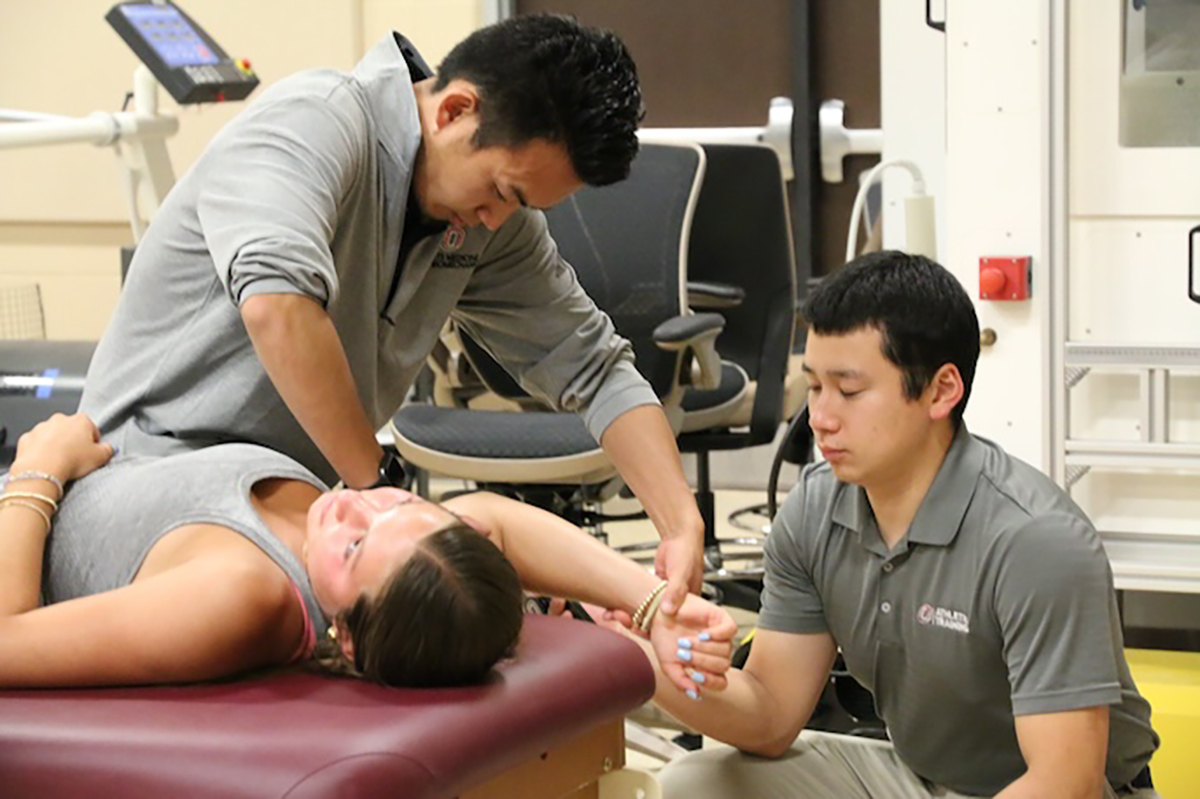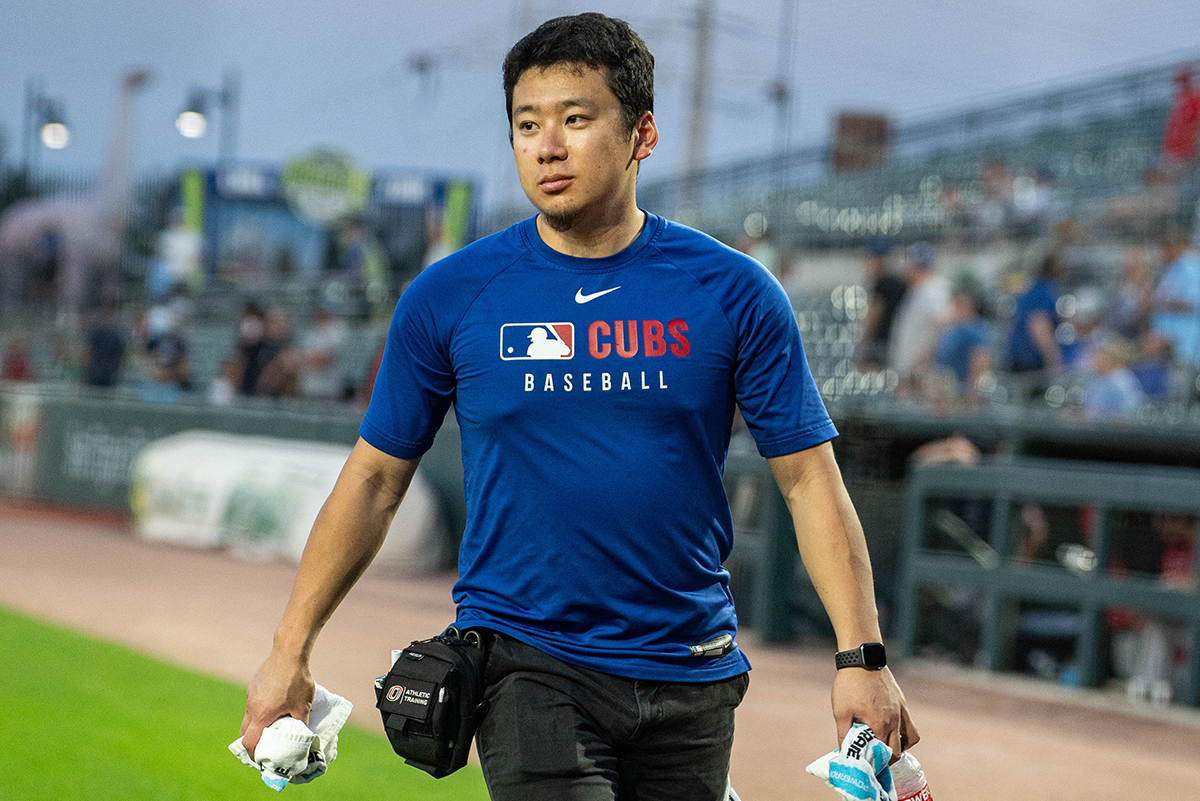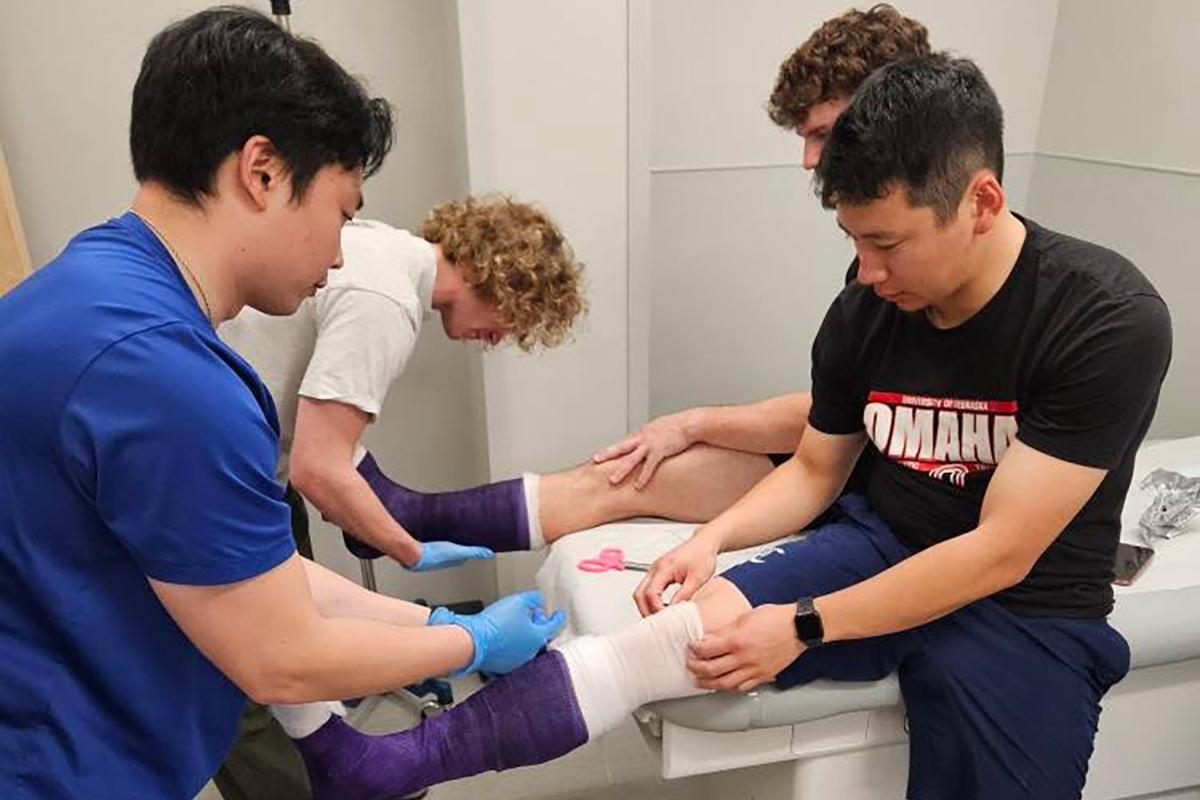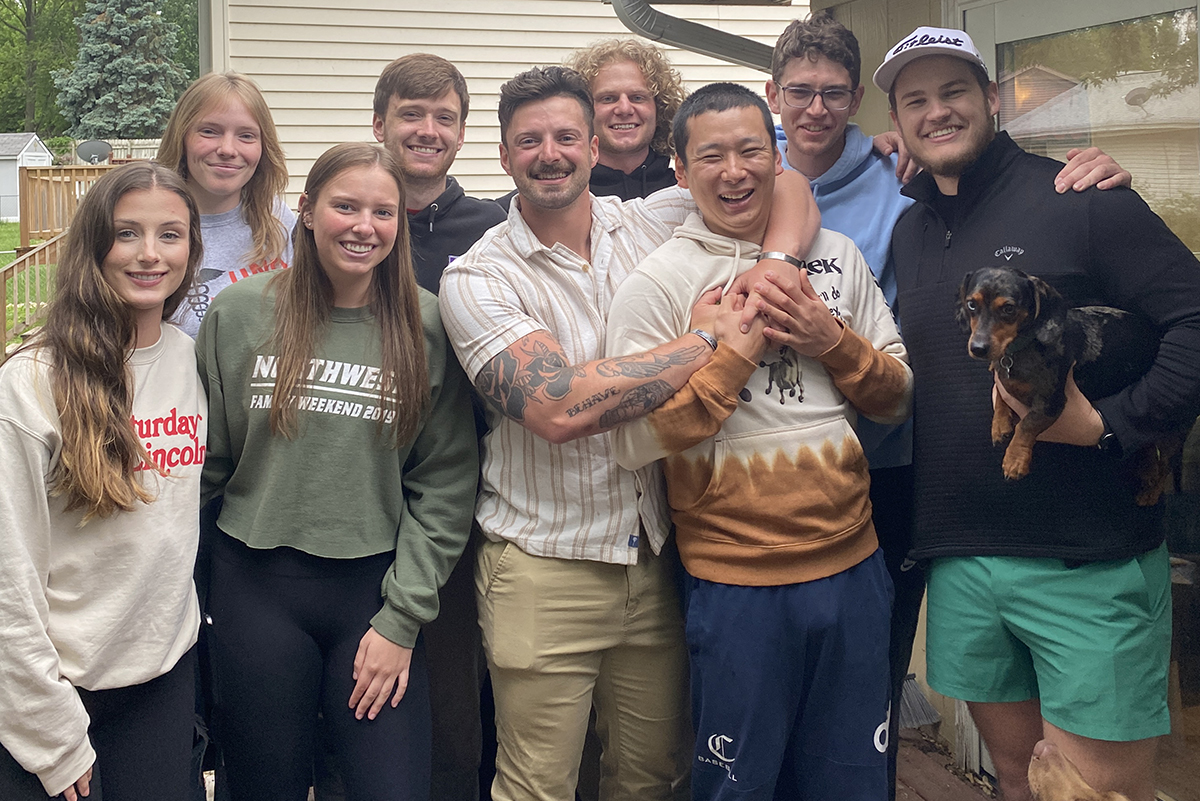From Japan to Omaha: Kenjiro Shibuya’s Journey to the Future of Sports Medicine
Graduate student Kenjiro Shibuya turned injury setbacks into purpose, pursuing UNO’s Master of Arts in Athletic Training program to advance sports medicine through research, clinical training, and community.
- published: 2025/09/17
- contact: Kari Ramsey - Office of Graduate Studies
- email: kariramsey@unomaha.edu
Graduate student Kenjiro Shibuya turned injury setbacks into purpose by pursuing the University of Nebraska at Omaha’s (UNO) Master of Arts in Athletic Training program to advance sports medicine through research, clinical training, and community.
Shibuya’s path to graduate education began with a setback. As a high school baseball player in Japan, recurring shoulder and elbow injuries forced him to give up his dream of playing professionally. Those same experiences, however, sparked a new goal — helping athletes avoid the struggles he had faced. Prior to studying athletic training, he had earned his physical therapy license in Japan with the goal of working as medical staff for a baseball team. While working as a physical therapist, he realized that he wanted to specialize in sports medicine with a focus on injury prevention and minimizing time lost from play. That realization inspired him to pursue athletic training.
Choosing UNO, Choosing Opportunity
Shibuya knew he needed advanced training to reach a career goal of joining the medical staff of a Major League Baseball team. He believed that athletic training in the U.S. offered highly advanced educational programs and research opportunities. For that reason, he decided to leave Japan and study in the U.S. A friend who worked as an athletic trainer first recommended UNO because of its nationally recognized pitching lab. After visiting campus, observing Master of Arts in Athletic Training classes, and meeting faculty and students, the decision became clear. The resources, facilities, and supportive environment confirmed his choice.
Facing Challenges, Finding Community
Like many international students, he faced challenges adjusting to life and study in the U.S., with language differences presenting the biggest hurdle. With the help of classmates, professors, and clinical preceptors, he overcame those obstacles and reflected on the close-knit community that had supported him and helped him learn not only academically but also culturally.
A Clinical Rotation to Remember
During spring 2025, Shibuya’s clinical rotations brought classroom lessons to life. He covered the Creighton University baseball team during practices and home games. Although he could not travel with the team, he felt connected to their success — especially when his preceptor shared the celebration after the team won the Big East Conference Championship. His preceptor also served as medical coordinator for the College World Series, giving him valuable experience at one of the premier baseball events in the nation.
Research That Could Change the Game
Shibuya’s interest in pitching biomechanics is rooted in his own experiences with injury as a young athlete. His research focuses on bony adaptations in baseball players — changes to the humeral bone that occur from years of repetitive pitching — and he hopes that this work will provide a foundation for future studies and contribute to injury prevention strategies.
Looking Ahead
Shibuya is expected to graduate in 2026, prepared for the next step in his career and carrying with him not only advanced training but also a supportive community. He found a place at UNO where he could grow both professionally and personally. Through the Master of Arts in Athletic Training alumni network, he gained valuable experience during a summer internship with the Iowa Cubs, opportunities that helped him move closer to his career goals.
About the Program
UNO’s Master of Arts in Athletic Training program prepared students to become highly skilled healthcare professionals through classroom instruction, cutting-edge research opportunities, and extensive clinical experiences with local, regional, and national organizations. Students learned from faculty leaders in sports medicine and gained hands-on training in UNO’s renowned pitching lab and through partnerships with area athletic programs.



